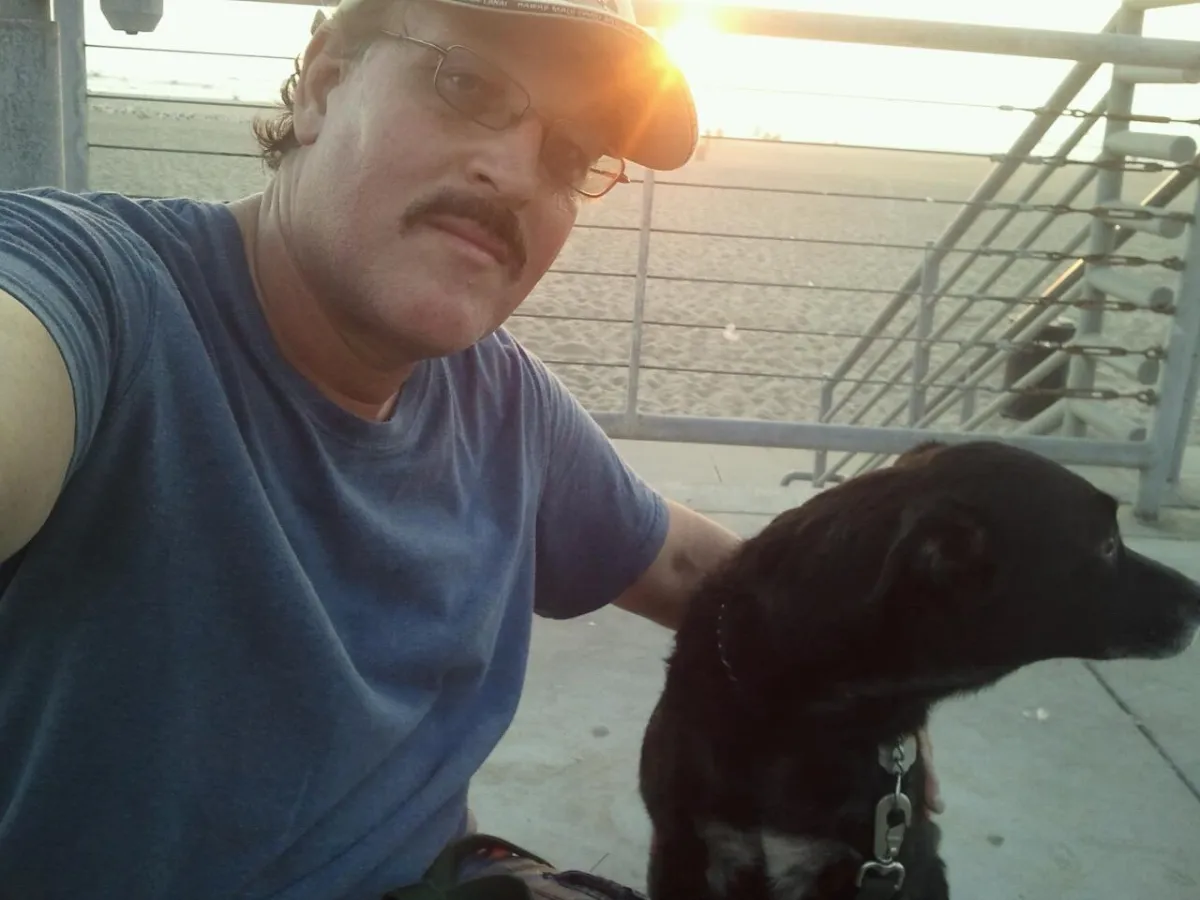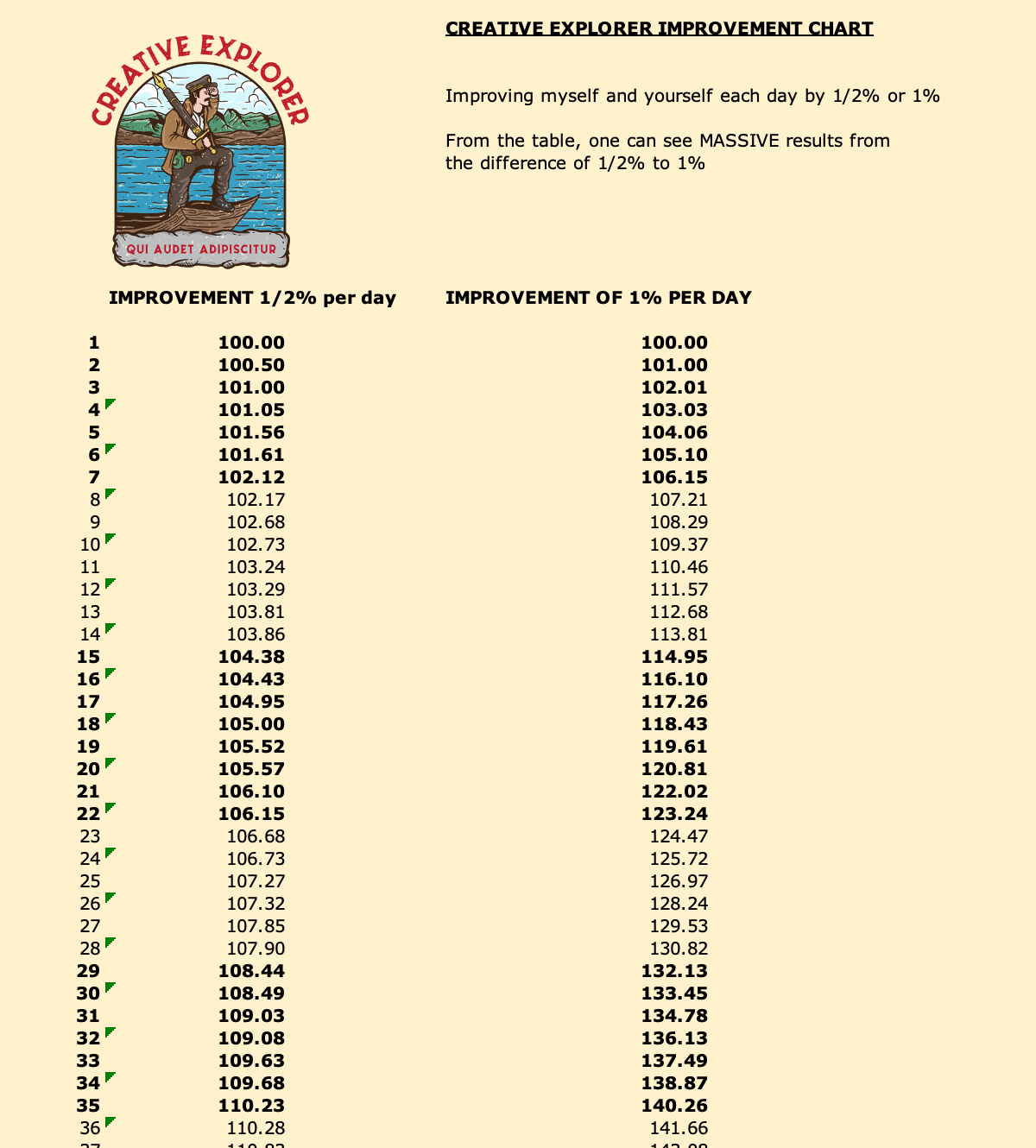
CreativeExplorer-MichaelMandaville.com
I work in Film. I live in Martial Arts. I thrive in Imagination.
Filmmaking & Writing
Scholar Warrior Way
Current Events

The Art of Sleep: Renew Your Self Each Night

Sleep. This aspect of our lives is probably the most ignored, abused and downright dismissed ‘activity’ for our physical and mental well-being. With a hyperactive, power through it all world of goal-setting, social media and endless streaming binges, we convince ourselves that sleep is secondary. “I’ll sleep when I’m dead” is a powerful refrain.
Hollywood Bravado…but not a smart move. Since I learn and teach martial arts over many decades, I read a books on history, warfare, martial arts skills and more. On book, “On Combat” by Lt. Col Dave Grossman, discusses the stress on our bodies from an altercation, warfare and more. I remember when a police officer told him that he’s under a lot of stress and asked what to do. When the officer replied that he usually slept five or six hours, then Colonel Grossman said, “Sleep eight.” Another observation is that, with more sleep, then you make better judgment calls i.e. police officer in a confrontational situation. In warfare, when soldiers learn that a battle is coming up, the veterans get sleep. The FNG’s (Friggin’ New Guys - or a more colorful expression) stay up all night, worried and ridden with anxiety. And then go into battle!
Three Steps
Simply put a few steps will improve your entire life with Better Sleep.
Realize that Sleep is an integral part of your Physical and Mental Well-Being
Create and Support a Habit for good sleep
Monitor Your sleep - to get better sleep
Repeat

Realize People (Probably You) Are Sleep-Deprived
According to numerous sources, the average adult may not be getting enough sleep. Statistically, at least 25 to 50% of Americans don't get enough sleep. In a link to the Center for Disease Control on Sleep and Sleep Disorders, we see the following charts.

Convince Yourself to Sleep More - with Math!
In reframing my perspective on Sleep and its value, I was thinking about the relationship between Sleep-Productivity-Efficiency-Value.
In my case, I sought to avoid sleep in order to 'get more done'. Then at some point, my health suffered along with my focus and my energy. I started to consider a simple equation.
What was the comparison between operating at 100% capacity at fewer hours as compared to 80-60-50% capacity at more hours. Simply put, if my focus and energy were lower, then how did it affect my productivity?
Key:
Sleep (Hours)
Productivity - hours available for work.
Efficiency - quality of this work timee
Value - the two values multiplied.

So the summary is that I get more sleep, less actual productivity hours - but with greater qualitative efficiency. For a higher sleep value. From an analytical point of view, the higher quality value of productivity is a better value. This strategy means not just good sleep - but efficient action on your part working toward your dreams.
Your New Habit for Better Sleep
The NIH says adults need 7-8 hours of sleep each night to stay in good mental and physical health, promote quality of life, and avoid an increased risk of injury. They recommend these tips for getting a good night’s sleep:
Go to sleep at the same time each night, and get up at the same time each morning, even on the weekends.
Don't take naps after 3 p.m, and don't nap longer than 20 minutes.
Stay away from caffeine and alcohol late in the day.
Avoid nicotine completely.
Get regular exercise, but not within 2-3 hours of bedtime.
Don't eat a heavy meal late in the day. A light snack before bedtime is OK.
Make your bedroom comfortable, dark, quiet, and not too warm or cold.
Follow a routine to help you relax before sleep (for example, reading or listening to music). Turn off the TV and other screens at least an hour before bedtime.
Don’t lie in bed awake. If you can’t fall asleep after 20 minutes, do something calming until you feel sleepy, like reading or listening to soft music.
Talk with a doctor if you continue to have trouble sleeping.
Sleep should become one your Main Habits to change as solid sleep will affect ALL YOUR WORK.
Make it a major Habit. You know what those are right?
DON'T BELIEVE ME? - CHECK OUT THESE LINKS
By the Way, if you can't sleep, then start reading about Sleep!
National Institute of Health - Sleep Health
https://www.nhlbi.nih.gov/health-topics/education-and-awareness/sleep-health
National Institute of Health - Your Guide to Healthy Sleep
https://www.nhlbi.nih.gov/health-topics/all-publications-and-resources/your-guide-healthy-sleep
https://study.com/academy/lesson/the-importance-of-sleep.html
Sleep Advisor
A commercial site where you can buy mattresses, etc., but also had a good section on "Sleep Science"
https://www.sleepadvisor.org/sleep-statistics/
https://www.sleepadvisor.org/sleep-science/
Sleep Association
https://www.sleepassociation.org/
https://www.sleepassociation.org/blog-post/why-is-sleep-important/
Consumer Reports - Better Ways to Sleep
https://www.consumerreports.org/sleeping/ways-to-sleep-better-tonight/
Center for Disease Control - Sleep Statistics
https://www.cdc.gov/sleep/data_statistics.html
37 Science Backed Tips for Better Sleep
https://www.huffpost.com/entry/better-sleep-tips-best_n_4958036

The Art of Sleep: Renew Your Self Each Night

Sleep. This aspect of our lives is probably the most ignored, abused and downright dismissed ‘activity’ for our physical and mental well-being. With a hyperactive, power through it all world of goal-setting, social media and endless streaming binges, we convince ourselves that sleep is secondary. “I’ll sleep when I’m dead” is a powerful refrain.
Hollywood Bravado…but not a smart move. Since I learn and teach martial arts over many decades, I read a books on history, warfare, martial arts skills and more. On book, “On Combat” by Lt. Col Dave Grossman, discusses the stress on our bodies from an altercation, warfare and more. I remember when a police officer told him that he’s under a lot of stress and asked what to do. When the officer replied that he usually slept five or six hours, then Colonel Grossman said, “Sleep eight.” Another observation is that, with more sleep, then you make better judgment calls i.e. police officer in a confrontational situation. In warfare, when soldiers learn that a battle is coming up, the veterans get sleep. The FNG’s (Friggin’ New Guys - or a more colorful expression) stay up all night, worried and ridden with anxiety. And then go into battle!
Three Steps
Simply put a few steps will improve your entire life with Better Sleep.
Realize that Sleep is an integral part of your Physical and Mental Well-Being
Create and Support a Habit for good sleep
Monitor Your sleep - to get better sleep
Repeat

Realize People (Probably You) Are Sleep-Deprived
According to numerous sources, the average adult may not be getting enough sleep. Statistically, at least 25 to 50% of Americans don't get enough sleep. In a link to the Center for Disease Control on Sleep and Sleep Disorders, we see the following charts.

Convince Yourself to Sleep More - with Math!
In reframing my perspective on Sleep and its value, I was thinking about the relationship between Sleep-Productivity-Efficiency-Value.
In my case, I sought to avoid sleep in order to 'get more done'. Then at some point, my health suffered along with my focus and my energy. I started to consider a simple equation.
What was the comparison between operating at 100% capacity at fewer hours as compared to 80-60-50% capacity at more hours. Simply put, if my focus and energy were lower, then how did it affect my productivity?
Key:
Sleep (Hours)
Productivity - hours available for work.
Efficiency - quality of this work timee
Value - the two values multiplied.

So the summary is that I get more sleep, less actual productivity hours - but with greater qualitative efficiency. For a higher sleep value. From an analytical point of view, the higher quality value of productivity is a better value. This strategy means not just good sleep - but efficient action on your part working toward your dreams.
Your New Habit for Better Sleep
The NIH says adults need 7-8 hours of sleep each night to stay in good mental and physical health, promote quality of life, and avoid an increased risk of injury. They recommend these tips for getting a good night’s sleep:
Go to sleep at the same time each night, and get up at the same time each morning, even on the weekends.
Don't take naps after 3 p.m, and don't nap longer than 20 minutes.
Stay away from caffeine and alcohol late in the day.
Avoid nicotine completely.
Get regular exercise, but not within 2-3 hours of bedtime.
Don't eat a heavy meal late in the day. A light snack before bedtime is OK.
Make your bedroom comfortable, dark, quiet, and not too warm or cold.
Follow a routine to help you relax before sleep (for example, reading or listening to music). Turn off the TV and other screens at least an hour before bedtime.
Don’t lie in bed awake. If you can’t fall asleep after 20 minutes, do something calming until you feel sleepy, like reading or listening to soft music.
Talk with a doctor if you continue to have trouble sleeping.
Sleep should become one your Main Habits to change as solid sleep will affect ALL YOUR WORK.
Make it a major Habit. You know what those are right?
DON'T BELIEVE ME? - CHECK OUT THESE LINKS
By the Way, if you can't sleep, then start reading about Sleep!
National Institute of Health - Sleep Health
https://www.nhlbi.nih.gov/health-topics/education-and-awareness/sleep-health
National Institute of Health - Your Guide to Healthy Sleep
https://www.nhlbi.nih.gov/health-topics/all-publications-and-resources/your-guide-healthy-sleep
https://study.com/academy/lesson/the-importance-of-sleep.html
Sleep Advisor
A commercial site where you can buy mattresses, etc., but also had a good section on "Sleep Science"
https://www.sleepadvisor.org/sleep-statistics/
https://www.sleepadvisor.org/sleep-science/
Sleep Association
https://www.sleepassociation.org/
https://www.sleepassociation.org/blog-post/why-is-sleep-important/
Consumer Reports - Better Ways to Sleep
https://www.consumerreports.org/sleeping/ways-to-sleep-better-tonight/
Center for Disease Control - Sleep Statistics
https://www.cdc.gov/sleep/data_statistics.html
37 Science Backed Tips for Better Sleep
https://www.huffpost.com/entry/better-sleep-tips-best_n_4958036

The Art of Sleep: Renew Your Self Each Night

Sleep. This aspect of our lives is probably the most ignored, abused and downright dismissed ‘activity’ for our physical and mental well-being. With a hyperactive, power through it all world of goal-setting, social media and endless streaming binges, we convince ourselves that sleep is secondary. “I’ll sleep when I’m dead” is a powerful refrain.
Hollywood Bravado…but not a smart move. Since I learn and teach martial arts over many decades, I read a books on history, warfare, martial arts skills and more. On book, “On Combat” by Lt. Col Dave Grossman, discusses the stress on our bodies from an altercation, warfare and more. I remember when a police officer told him that he’s under a lot of stress and asked what to do. When the officer replied that he usually slept five or six hours, then Colonel Grossman said, “Sleep eight.” Another observation is that, with more sleep, then you make better judgment calls i.e. police officer in a confrontational situation. In warfare, when soldiers learn that a battle is coming up, the veterans get sleep. The FNG’s (Friggin’ New Guys - or a more colorful expression) stay up all night, worried and ridden with anxiety. And then go into battle!
Three Steps
Simply put a few steps will improve your entire life with Better Sleep.
Realize that Sleep is an integral part of your Physical and Mental Well-Being
Create and Support a Habit for good sleep
Monitor Your sleep - to get better sleep
Repeat

Realize People (Probably You) Are Sleep-Deprived
According to numerous sources, the average adult may not be getting enough sleep. Statistically, at least 25 to 50% of Americans don't get enough sleep. In a link to the Center for Disease Control on Sleep and Sleep Disorders, we see the following charts.

Convince Yourself to Sleep More - with Math!
In reframing my perspective on Sleep and its value, I was thinking about the relationship between Sleep-Productivity-Efficiency-Value.
In my case, I sought to avoid sleep in order to 'get more done'. Then at some point, my health suffered along with my focus and my energy. I started to consider a simple equation.
What was the comparison between operating at 100% capacity at fewer hours as compared to 80-60-50% capacity at more hours. Simply put, if my focus and energy were lower, then how did it affect my productivity?
Key:
Sleep (Hours)
Productivity - hours available for work.
Efficiency - quality of this work timee
Value - the two values multiplied.

So the summary is that I get more sleep, less actual productivity hours - but with greater qualitative efficiency. For a higher sleep value. From an analytical point of view, the higher quality value of productivity is a better value. This strategy means not just good sleep - but efficient action on your part working toward your dreams.
Your New Habit for Better Sleep
The NIH says adults need 7-8 hours of sleep each night to stay in good mental and physical health, promote quality of life, and avoid an increased risk of injury. They recommend these tips for getting a good night’s sleep:
Go to sleep at the same time each night, and get up at the same time each morning, even on the weekends.
Don't take naps after 3 p.m, and don't nap longer than 20 minutes.
Stay away from caffeine and alcohol late in the day.
Avoid nicotine completely.
Get regular exercise, but not within 2-3 hours of bedtime.
Don't eat a heavy meal late in the day. A light snack before bedtime is OK.
Make your bedroom comfortable, dark, quiet, and not too warm or cold.
Follow a routine to help you relax before sleep (for example, reading or listening to music). Turn off the TV and other screens at least an hour before bedtime.
Don’t lie in bed awake. If you can’t fall asleep after 20 minutes, do something calming until you feel sleepy, like reading or listening to soft music.
Talk with a doctor if you continue to have trouble sleeping.
Sleep should become one your Main Habits to change as solid sleep will affect ALL YOUR WORK.
Make it a major Habit. You know what those are right?
DON'T BELIEVE ME? - CHECK OUT THESE LINKS
By the Way, if you can't sleep, then start reading about Sleep!
National Institute of Health - Sleep Health
https://www.nhlbi.nih.gov/health-topics/education-and-awareness/sleep-health
National Institute of Health - Your Guide to Healthy Sleep
https://www.nhlbi.nih.gov/health-topics/all-publications-and-resources/your-guide-healthy-sleep
https://study.com/academy/lesson/the-importance-of-sleep.html
Sleep Advisor
A commercial site where you can buy mattresses, etc., but also had a good section on "Sleep Science"
https://www.sleepadvisor.org/sleep-statistics/
https://www.sleepadvisor.org/sleep-science/
Sleep Association
https://www.sleepassociation.org/
https://www.sleepassociation.org/blog-post/why-is-sleep-important/
Consumer Reports - Better Ways to Sleep
https://www.consumerreports.org/sleeping/ways-to-sleep-better-tonight/
Center for Disease Control - Sleep Statistics
https://www.cdc.gov/sleep/data_statistics.html
37 Science Backed Tips for Better Sleep
https://www.huffpost.com/entry/better-sleep-tips-best_n_4958036

Did You Know...
... if you improve 1/2% each day, then you will be 267% better over one year? Who can compete with that?

Setting Yourself Up for Success usually doesn't mean one big jump but rather incremental change day after day. Think of it like a ocean wave, moving far out in the Pacific with almost an undetectable push...finally with the power and grace of an ocean wave onto the beach. Create your own metaphor to embrace small habits with a huge future impact.




Facebook
Instagram
X
LinkedIn
Youtube
Website